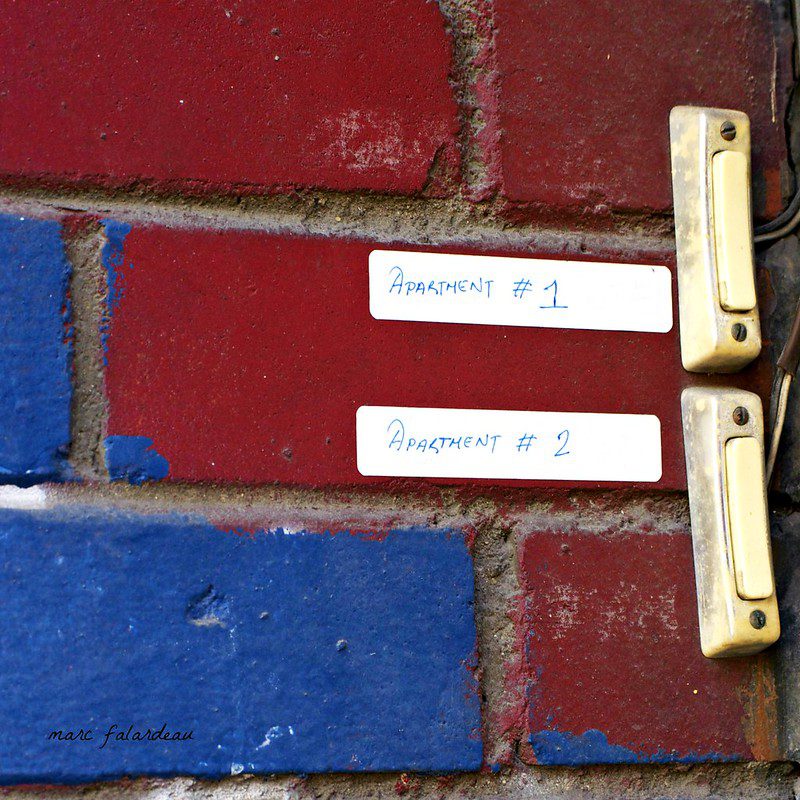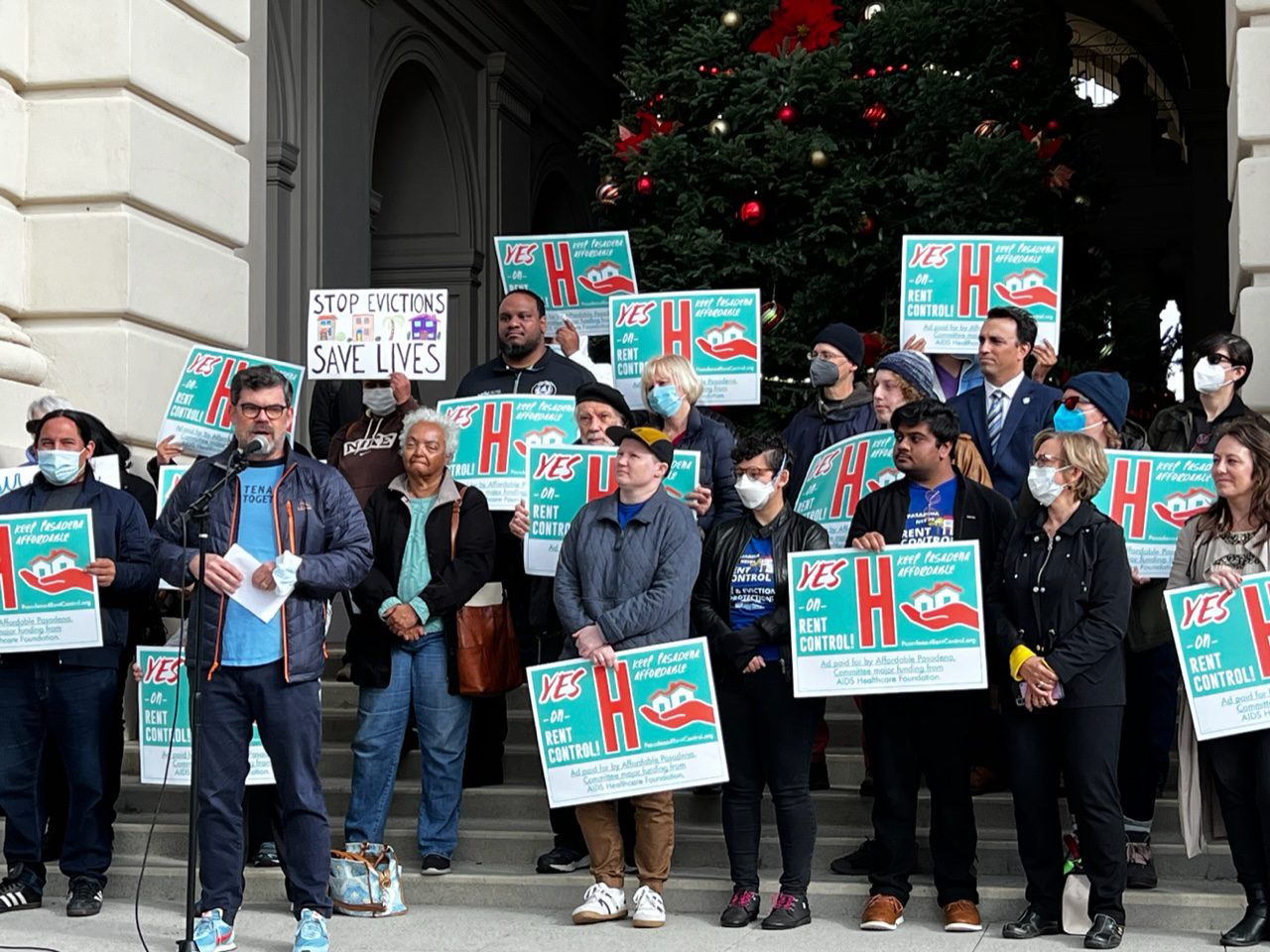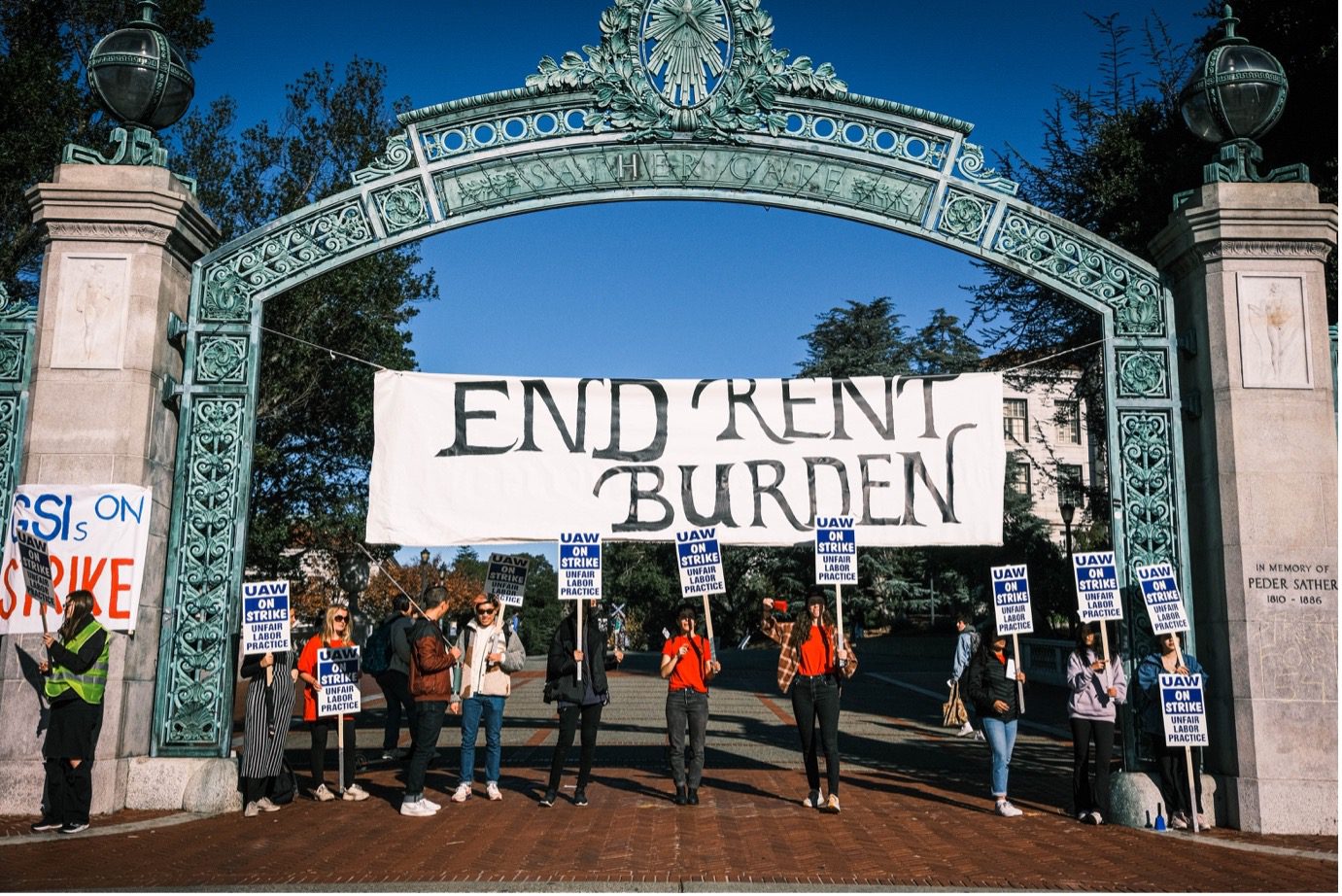This article is part of the Under the Lens series

Photo by Flickr user Marc Falardeau, CC BY 2.0
You’ve decided to move to a new place. You scour the typical rental websites, browsing various options within your budget. Once you’ve decided on a place, you initiate the beginning of a new relationship—between landlord and tenant—through signing a lease. While this legal contract is the foundation of the rent relationship, it’s often not simple to navigate.
These contracts—typically covering a period of about 12 months—are often lengthy and full of legal language that can be hard for the average person to understand. Most people don’t have the time, bandwidth, or motivation to parse a lease and fully understand everything they are agreeing to. In some tight housing markets, people are so desperate to secure a place to live that they might not even have time to read a 20-plus page contract before signing.
Given that a lease is a legal contract, many people assume that the clauses in a lease are non-negotiable and, at the very least, legal according to federal, state, and local laws. However, according to housing organizers, tenant lawyers, and tenant advocacy nonprofits, not all leases fully abide with the law. Some plainly contradict state law or include questionable, punitive, or egregiously anti-tenant clauses.
Take, for example, leases that were part of an investigation by Jesse Tree, a Boise, Idaho-based nonprofit that provides services to households in danger of eviction and homelessness. The organization examined 40 leases this past summer from folks who live in the Treasure Valley area of Idaho. Reviewers found that 40 percent of those leases had questionable clauses. Some had exploitative though not clearly illegal elements, and others plainly contradicted Idaho’s state landlord-tenant laws. Some of the clauses Jesse Tree found that are illegal in Idaho gave landlords the “right” to seize a tenant’s private property or shut off utilities for failure to pay rent, and required that a tenant waive their right to jury trial in eviction cases. Other leases stipulated that a landlord could not be sued for not fulfilling their obligations.
Ali Rabe, executive director of Jesse Tree, says that landlords get away with including illegal and questionable clauses in their leases because the local housing market is tight. When demand is high, landlords have the upper hand and they can take advantage of tenants who are desperate for housing or simply unaware that their lease could contain illegal provisions.
“Some landlords might know these are questionable and are taking their chance,” Rabe says. “We have a less than 1 percent vacancy rate in the rental market in the Boise metropolitan area. Often, tenants apply to dozens of places and pay hundreds [in] application fees and won’t hear a response back. There is high competition, so if a tenant does find a place, they often feel obligated to sign on the dotted line and don’t read the lease.”
Another reason for the inclusion of questionable clauses in leases, says Rabe, is the growth of large interstate corporate landlords. These companies are often based in another state and begin operating in Idaho without checking their leases against Idaho’s landlord-tenant laws.
[RELATED SERIES: Homes or Cash Cows?]
Tenant advocates across the country are seeing the same trend. Carol Ott, the tenant advocacy director for the Fair Housing Action Center of Maryland, says most of the complaints she’s heard from clients regarding illegal or abusive lease clauses stem from out-of-state landlords. “A lot of times [out-of-state] landlords and management companies don’t bother to look up the local laws that govern their business. . . there’s a certain amount of laziness when it comes to landlords and management companies. They assume tenants aren’t going to know,” says Ott.
This past summer, in an effort to examine what we noticed were longer and often more convoluted agreements between landlords and tenants, Shelterforce asked renters to send us their leases.
Some of the leases we received included provisions that contradicted state law: For example, one upstate New York lease says the landlord will return security deposits within 30 days of a move out, though state law requires they return deposits within 14 days.
Several others had an explicit acknowledgment that parts of their lease might be invalid. For example, a lease for a different apartment in New York state reads, “Neither an invalid clause nor the omission of any initials on any page invalidates this lease,” leaving tenants to figure out which provisions those might be. While this is a common provision in many contracts to avoid accidently invalidating the whole contract with a misstep, it also seems that landlords are leaving in provisions they should know are invalid.
Some leases we reviewed were also misleading by omission, neglecting to mention basic tenant rights, while emphasizing the landlord’s. The security deposit section of a lease from San Francisco we reviewed, for example, spells out that the landlord can deduct from the security deposit in the case that a tenant breaches any provision of the lease, including being behind on rent, but it doesn’t mention any of the tenants’ rights regarding the deposit. By California law, for example, landlords have 21 days after a tenant moves out to either return the tenant’s security deposit in full or provide a letter, itemized list, and receipts for the deductions. The lease mentions none of this.
Common Illegal Clauses
In upstate New York, Laura Felts, a consultant working in housing organizing, says that illegal clauses are often embedded in contracts because businesses want to take advantage of their tenants. “The most common illegal and abusive clauses are put in leases to make money off the tenant. . . . These clauses are unconscionable, such as those that protect the landlord from any kind of liability including damage and injuries that are caused by the landlord,” says Felts.
A lease agreement for an apartment in Halfmoon, New York, for example, reads, “We’re not liable to any tenant, guest, or occupant for personal injury or damage or loss of property from any cause.” “Any cause” gives the impression that they aren’t liable even for problems caused by their negligence or direct action.
“Say the landlord lit the house on fire and all your stuff is damaged, but the lease says the tenant doesn’t have the right to sue the landlord,” says Felts. “The court wouldn’t uphold the lease clause, but tenants read the lease and they think they can’t sue because they signed it.”
When Felts worked at the United Tenants of Albany, she says she repeatedly told tenants who called their hotline: “Your landlord can give you a lease that says if you fail to pay rent they will take your firstborn child, and you can sign that lease, but it doesn’t make it legal or enforceable because it’s contrary to a big pile of public policies and your landlord can’t arbitrarily change or outright contradict existing laws with their lease, though they might try.”
A Residential Tenants Guide that stipulates rights for renters in New York declares that, under New York State general obligations and real property law, the following lease provisions are not allowed:
- waiving the tenant’s right to a jury trial in any lawsuit due to personal injury or property damage brought by either party;
- exempting landlords from liability for injuries caused by the landlord’s negligence;
- requiring tenants to pledge personal property like household furniture as security for rent;
- waiving the warranty of habitability; and more.
(Contract and property law varies state to state, so these protections may not be in effect everywhere.)
Canyon Ryan, the current executive director at United Tenants of Albany, says he still sees these illegal clauses in leases. “Leases are full of illegal clauses because the landlord assumes the tenant doesn’t know otherwise,” he says.
Some leases try to lessen landlords’ liability in more subtle, possibly more technically legal ways. For instance, a lease from an apartment in Georgia reads, “the Tenant(s) agrees to hold the Landlord harmless from any claims or damages unless caused solely by the Landlord’s negligence.” The task of demonstrating that a given harm was caused “solely” by the landlord’s negligence could be difficult.
On the West Coast, Tenants Together—California’s statewide renters’ rights organization—sees a similar pattern from landlords, and offers tenants resources to help them identify questionable lease provisions—whether illegal or “just” predatory—before they sign them. Shanti Singh, the organization’s communications and legislative director, says, “Tenants Together provides sample leases to tenants precisely because landlords often sneak unnecessary and invasive clauses into leases, expecting that the tenant either won’t read the fine print before signing or won’t feel empowered to negotiate predatory clauses out of the lease. This includes, but is not limited to, invasive surveillance clauses, changes in late fees, removal of amenities, extra charges for necessities like trash collection, security deposit return terms, and more.”
Variations in Landlord-Tenant Law
Landlord-tenant law consists of a constellation of federal, state, and municipal laws. Federal law stipulates broad regulations mostly pertaining to housing discrimination and health hazards, but most legal obligations of landlords and tenants are determined by state and local laws. What’s considered permissible varies widely from place to place.
Leases are contracts and contract law is largely determined by case law, which is composed of rulings made by individual judges where they interpret rules to resolve unique disputes in the courtroom. Because of this layer of interpretation via case law, the legality of some lease clauses can be difficult to determine. There may be no state law that explicitly addresses them, but case decisions might, or if there is a law, case decisions might add additional parameters to it.
In California, for example, the legality of late fee clauses in lease contracts is determined by a complex interaction between state statute and case law. According to an explanation by Law360, late fees stipulated in leases are considered “liquidated damages,” which are defined by California Civil Code Section 1671 as a predetermined amount of damages stated in a contract as compensation for a breach.
There is no state statute that limits the amount landlords can charge for late-payment fees. California Civil Code 1671 does address the topic, albeit in vague terms. “Liquidated damages” are valid, it says, only if “it would be impracticable or extremely difficult to fix the actual damage,” —in this case, of a late rent payment—and “the party seeking to avoid the liquidated damages” can’t establish that “the provision was unreasonable at the time the contract was made.”
California courts, have, as far back as 1899, interpreted this language to mean that late fees are unenforceable under law if they do not reflect a “reasonable estimate of the amount the lateness of the payment will cost the landlord,” or if the impact of a late rent payment is not difficult to fix.
“Case law has interpreted California Civil Code 1671 with a high burden,” says Ethan Silverstein, a tenant attorney with the ACCE Institute, a nonprofit community organization in California. “What is a reasonable estimate of the harm of not paying rent [on time]? What economic harm does the landlord suffer? . . . It can include, for example, the cost of printing out a notice. No one has a $2.50 late fee, though. They are $50 or $100 or $200.”
It is likely that many late fees would not meet the case law tests, but it can be hard to know without challenging them. And challenging the enforceability of a late fee with a landlord can come at a high cost.
“The most common way disputes on lease clauses play out is that landlords file evictions against tenants for allegedly violating the clause,” says Silverstein. “In many cases, tenants cannot obtain legal help and end up being evicted without the merits of the clause ever being addressed. There is unfortunately no statewide right to counsel in eviction cases.”
Specifically in the case of late fees, Silverstein says, “The most common way tenants fight late fees is to not pay them. This is risky because the landlord may claim, in my opinion wrongfully, that the tenant did not pay rent. . . . Even assuming the tenant has a lawyer on standby ready to zealously represent them free of charge, who wants to get sued and go to court over a $75 fee? Especially when there is always a possibility of losing.”
The burden of illegal and questionable lease clauses likely falls most heavily on low-income communities, since households in these communities often have fewer options for action. “If I live in a rental and I’m not low income, I have options and I wouldn’t want to stay there if I have such a crummy landlord. But you don’t have choices when you are low income,” says Ott of Fair Housing Action Center of Maryland. “Money doesn’t buy you happiness, but it does buy you choices . . . If you’re low income and try to fight your landlord on a lease clause, you might go from the frying pan right into the fire.”
Fighting for Change
Oftentimes, landlords hold most of the power in a landlord/tenant relationship. Housing organizers across the country are fighting for legislation to begin leveling the playing field between the two.
In Albany, New York, for instance, an anti-retaliation law passed in 2019 prohibits a landlord from retaliating against a “a good faith complaint” about a “landlord’s alleged violation of any health or safety law, regulation, code, or ordinance, the warranty of habitability.” The law also prohibits retaliation from the landlord as a result of a tenant securing or enforcing any rights under the lease or rental agreement, or the tenant’s participation in a tenants organization.
Albany is also working to pass a good cause eviction law. Ryan, of United Tenants of Albany, says such a law “offers tenants a general defense that assumes protection unless the landlord is able to demonstrate ‘cause’ to evict, being non-payment, significant lease violations, unreasonably denying the landlord access to the unit, persistent nuisance activity, property sale, or landlord family occupancy. The landlord cannot terminate a lease with ‘no cause,’ they cannot hike rent unconscionably, and they most definitely cannot lock the tenant out without a court order. . . There should really be little room for retaliatory eviction.”
As housing organizers work to pass official legislation, they recommend tenants work together to fight for their rights against landlords who include illegal provisions in their leases.
“Tenants often look to the legislature to fix these problems,” says Silverstein. “That’s an important part of the solution, but we can’t stop there. It’s imperative that tenants organize with their neighbors and build collective power. That’s the only way we’re going to address the more systemic issues.”
‘Community is power and landlords seeing tenants organizing scares the shit out of them.’
Ryan adds that collective action motivated by sharing individual suffering is what will keep landlords accountable. “Landlords try to silo issues on a single household and keep tenants to individual suffering. But when it comes to bargaining with a landlord, individual suffering isn’t going to help you win; it’s going to depress and demotivate you. It’s collective suffering that will engage you. Collective bargaining allows you to hone into the issue because we have the bodies and we are where money comes from. Community is power and landlords seeing tenants organizing scares the shit out of them ”
Empowering Renters with Resources
One of the best ways to protect yourself from illegal or unethical conduct from landlords is to know your rights. Tenants organizations often have resources like Tenants Together’s “Tenants Defense Toolkit,” which provides educational information about tenants rights and gives actionable steps about what to do if you think your rights are being violated. For example, tenant unions sometimes provide sample letters to send to your landlord in protest, in cases like invalid eviction or invalid rent increase notices.
In addition to tenants unions, local and state governments—for example, the office of New York Attorney General Letitia James—sometimes provide educational handbooks about landlord-tenant law that list rights you have as renters and what is and is not allowed in leases under law.
If you’re in the market for a new rental, take the time to read your lease thoroughly before signing. Even if you’ve already been living in your rental, it’s never too late to research landlord-tenant laws in your state and locality—don’t assume that a questionable lease provision is valid or enforceable, even if you’ve already signed and dated your rental agreement.
You can check your lease against online resources like the self-help legal website Nolo, where you can see general information about landlord-tenant law in each state. You can also conduct research through LawAtlas, under the “Housing” topics, where you can use interactive datasets with compiled information related to state landlord-tenant law, fair housing protections, and city nuisance property ordinances. Another tool, Legal Services Corporation’s Eviction Laws Database, allows you to research eviction laws and procedures across all the states.
If you have specific questions about your lease or landlord-tenant law in your area, don’t hesitate to ask. Tenant organizations like Tenants Together and United Tenants of Albany often have a free housing hotline or helpline staffed by people who are there to answer your questions or direct you to a resource that can help.
If you believe your rights are being violated by a landlord and want to take legal action, make sure to consult a lawyer.
“It’s important for tenants to remember that just because it’s in a lease, it doesn’t mean it’s enforceable or legal,” says attorney Silverstein. “Many rights of tenants and responsibilities of landlords cannot be contracted away. Tenants should definitely reach out to legal aid attorneys before taking serious action based on a lease agreement.”
|
|






Comments